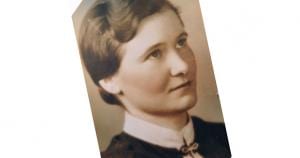 Like the knowledge that you will be hanged in the morning, bad economic times concentrate the mind wonderfully, but with the added advantage of being able to do something with what you have learned next week.
Like the knowledge that you will be hanged in the morning, bad economic times concentrate the mind wonderfully, but with the added advantage of being able to do something with what you have learned next week.
What should we learn from hard times?
If my bad finances are the result of foolish or wicked behavior, there is an obvious lesson to learn. Assuming that high returns can come without high risk is foolish. Spending your spouse’s retirement fund on a Vegas fling is wicked. The wages of economic sin is financial death. Some of us earn our poverty. Many of us blame the stars for our stupidity, but often the problem is not in our fate, but in our bad choices. In bad economic times, a wise man will check first to see what he or she has done wrong.
Sadly, for those moral scolds with an overdeveloped internal nag, this explanation is not enough to explain most poverty.
Sometimes, so far as anybody can tell, we hit the bottom financially through no fault of our own. Jesus rebuked the simplistic idea that all our suffering comes from bad things we, or even our families, have done. Some of the poor did not earn their poverty, just as many of the rich did not earn their wealth.
Just as it generally does not cheer us up to contemplate that we could have broken both our arms after breaking one, so knowing the rest of the world is even worse off than we are does not help much. The miserable may love company, but they are still miserable.
So is the bad news that we need virtue and economic luck to be happy?
Basing our happiness on economic prosperity is like planning an outdoor wedding in Seattle. It might work out, but it is just as likely to rain and spoil the overly optimistic dream. The person who can only have beautiful feelings when everything is going his way will be miserable much of the time.
Do only men born into riches or with great economic luck have a shot at true happiness?
Christianity had a better idea. It enabled even martyrs to find joy.
Contrary to the expectations of philosophers such as Aristotle, there is good reason to believe that while not the cause of economic pain, God can use that pain to help us find deeper happiness. After all, even when the dismal world of human economics disappoints us, there is the Divine economy of endless love, mercy, and grace given to us for free.
The immortal soul can find endless delights in the love of God.
A courageous man, the noble pagan, might survive even a gulag with admirable stoicism. A great Christian can flourish there. God hates the pain that men inflict on other men. He did not desire a world where some starve while others are gluttons. He gave people power and people abused that power. As a result, much of what happens to us in particular economically is meaningless and wicked. Bad things, economic or otherwise, that some people do to other people are never good in themselves.
The good news is that God takes that unavoidable meaninglessness and gives it the possibility of meaning. It can be used to turn us from the mutable to the immutable. Sometimes, Christians discover that hard economic times, which go on being painful, force us to find the deeper joys of spiritual time.
If we are wise, hard times teach us to invest more of our psychological resources in the world to come rather than in this life.*
This possibility of happiness is not available only to the Stoic sage, but to any man or woman.
My mother’s mother, my Nana, had a hard life. She had a difficult childhood in foster care. She had physical disabilities that limited her mobility and caused her pain. She lived through the Great Depression, so she knew economic times so hard that merely having food enough was a goal.
I have never known anyone happier.
Her Christian faith was deepened in every difficulty and her wisdom increased. She was not “educated” as our culture counts education, but a very hard life, her school, combined with serious religious study, constant Bible reading and reflection, made her wise. She was never stoic about suffering in her own life or in the lives of others. Her first reaction was always one of compassion.
She did not pretend evil was unreal, but she was not overwhelmed by it. Christianity was a comfort to her, of course, but much more. She was poor for much of her life, but she was happy. She was always growing as a person and her relationship with Jesus Christ gave her that.
Her religious life did not make her narrow, but opened new possibilities for her. Unlike so many of us, Nana did not envy or covet the external success of others. She would express it Biblically. Having found a “pearl of great price” in Jesus, she did not need much else. She did not cling to religion in her misery, but she flourished as her misery was tempered with hope through knowing God.
She was a visionary who saw the heavenly city and after that vision could learn from comparing what she had seen with what was around her. She was heavenly minded, but also earthy. She did not long for hard times, but flourished in them.
This is one reason that many of the poor understand the importance of religion in hard times. The rich, as Jesus pointed out, may trust their riches to bring happiness. Even if wealth has not done so yet, a certain kind of fool believes it will do so soon if only there was a bit more. Nana knew better.
She would have gladly received better economic times or more opportunities. Big business killed my grandfather through unsafe practices, but this injustice could not touch her happiness or their love. What the world did not give, the world could not take away.
God’s gentle voice of love is easier to hear when the ubiquitous and blaring commercials for materialism are shown to be lies by bad times. Nana often pitied my generation that had missed the lessons of the Great Depression.
One good thing about human sin is that the effect of it can remind us of the cure. When a greedy culture rips us off, even through no fault of our own, it reminds us of Nana’s treasure available to all. She was prepared by life to become the King’s friend and live in a mansion built for her use. She did not covet the wealth of the rich, though she would have enjoyed it, because all the material wealth of this life could not buy a square foot of her true home.
Access to this paradise is free.
Nor was this just “pie in the sky by and by” for Nana gained peace and contentment that aided her enjoyment of the foretastes of heaven she did receive.
Nana tried, often vainly, to teach some of her wisdom to me. My road has been intellectually harder, but philosophy is slowly teaching me what Nana knew. She is waiting for me at a great feast, her poverty and pain forever ended. Nana is perfectly happy and is rich beyond the dreams of earthly desire.
*We should also work for justice so big companies like Union Carbide cannot kill my grandparents. We should work for justice in economic relationships, yet as we seek a better society, we need not be miserable. We can be happy internally while unhappy with the unjust externals.












